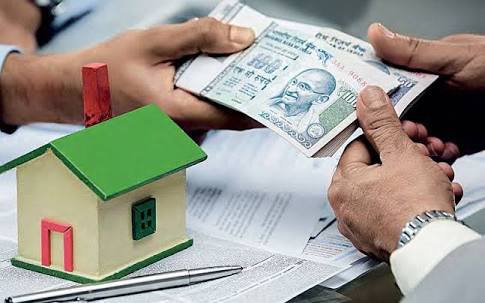AdVocate harshit Sachar | chamber no: 617 | district courts ludhiana | 2817 gurdev nagar ludhiana | ✆+91 7889228369
The Legal Risks of Giving or Taking Cash Loans on High Interest in India
Cash loans on high interest can lead to legal disputes — understand their risks, enforceability, and what Indian courts say.
CRIMINAL LAWCOMMERCIAL CASE LAWAWARENESS & COURT PROCESSES
Advocate Harshit Sachar Ludhiana
9/12/20253 min read


⚖️ Understanding the Practice
Across India, many people — especially in informal sectors — still give or take cash loans at very high interest rates without written agreements or bank records. While these arrangements appear convenient, they often become legally unenforceable and risky, especially when disputes arise or repayment is defaulted.
💰 What the Law Says About Cash Loans
Under Section 269SS of the Income Tax Act, any loan or deposit above ₹20,000 must be made only through bank channels — like account payee cheque, bank draft, or electronic transfer.
Cash loans above this limit attract penalty under Section 271D, equal to the amount of the loan.
Giving loans as a business without a money lending licence is prohibited under various State Money Lenders Acts and can also make the transaction void.
📌 Important: While giving cash loan is not automatically illegal, courts demand strict proof that the loan was genuine, accounted for, and within the lender’s financial capacity.
⚖️ Court Judgments on Cash Loans
1. Kishan Rao v. Shankargouda (2018) 8 SCC 165
The Supreme Court held that cash loans are not automatically illegal, but the lender must prove source of funds and genuineness. Mere violation of Section 269SS does not make the loan void.
2. A.B. Shanthi Case (2002) 6 SCC 259
The Supreme Court upheld Section 269SS, stating it was enacted to prevent black money and tax evasion — reinforcing that cash loans above ₹20,000 are discouraged and penalised.
3. Basalingappa v. Mudibasappa (2019) 5 SCC 418
The Court ruled that the lender must show evidence of financial capacity when claiming a cash loan. Without such proof, the claim may fail.
📌 High Courts across India have also dismissed recovery suits where large cash loans were given without written proof, bank entries, or income tax disclosures, calling them unaccounted or black money transactions.
⚠️ Risks for People Giving Cash Loans
May not get the money back if the borrower disputes it.
Cannot prove in court without documents or bank trail.
May face penalty from Income Tax Department.
Could be prosecuted if acting as an unlicensed money lender.
Cannot charge excessive interest legally, as courts may treat it as exploitation or usury.
⚖️ Rights of Borrowers
Borrowers facing harassment or illegal recovery for cash loans can:
File a police complaint if threats or force are used.
Challenge the enforceability in court by questioning the lender’s licence, financial capacity, and legality of the transaction.
Report unlicensed money lending to local authorities under the State Money Lenders Act.
📌 Key Takeaways
Avoid giving or taking big cash loans, especially on very high interest.
Always use bank transfer, loan agreement, and receipts.
If lending is done as a business, get a money lending licence.
Document everything — courts value evidence, not oral claims.
⚖️ Conclusion
Informal cash loans at undue interest may seem convenient but can become legally risky traps. The law does not support unaccounted cash lending, and courts can refuse recovery without solid proof. Protect yourself by keeping loans transparent, documented, and within the law.
💭 Common Myths About Cash Loans
⚠️ Many people unknowingly fall into legal trouble due to these common misconceptions.
Myth 1: “If I have a signed paper, I can recover my cash loan.”
➜ Reality: Courts also check your financial capacity and bank trail. A paper alone may not prove a large cash loan.Myth 2: “High interest is allowed if both parties agree.”
➜ Reality: Excessive interest is treated as exploitation/usury. Courts can reduce or disallow it, even if agreed.Myth 3: “Cash loans are always enforceable in court.”
➜ Reality: Cash loans above ₹20,000 violate Section 269SS, and without proper proof, courts may dismiss the claim.Myth 4: “There is no penalty for giving cash loans.”
➜ Reality: Income Tax Act imposes penalty equal to the loan amount for violating Section 269SS.Myth 5: “I can keep lending money as side income.”
➜ Reality: Doing so without a money lending licence is illegal under State laws and can lead to prosecution.
⚖️ Disclaimer
This article is intended for general information and public awareness only. It does not constitute legal or financial advice. Lending money without proper documentation or licence may have legal consequences. Readers are advised to consult a qualified legal professional before taking any action based on this information.
Services
Sachar Law Firm – Advocate, Lawyer, Attorney & Solicitor Services in India | Ludhiana, Punjab.
Expert legal advice across various practice areas - Civil, Criminal, Divorce and Matrimonial, Consumer and Corporate laws, Bail Matters, Property Contract Disputes, Insurance claim disputes, cyber Crime cases, Cheque bounce, Family Divisions, Arbitration. Bail Matters, Electricity Board Cases, Appeals before Session court Ludhiana, Marriage certificate, Court Marriage, Succession Certificate Accident Claim (MACT), NRI Legal Matters, NRI Property Matters.
“Get in Touch with Sachar Law Firm”
Quick Links
© 2025. All rights reserved.
Advocate Harshit SACHAR
Legal Blog
2817, 1st Floor , Gurdev Nagar, Ludhiana, Punjab -141001
Address: Office Cum Res:
Corporate Liquidation and Recovery Litigation
☎️ 0161 7965410
